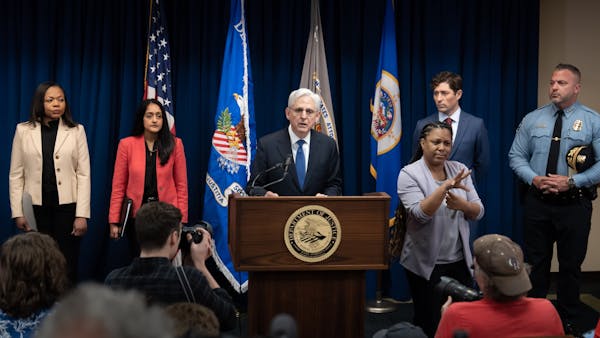The Minneapolis City Council on Thursday approved a $95,000 police misconduct settlement for a Black motorist unlawfully stopped in 2019 by disgraced MPD officer Ty Jindra as a ruse to search for drugs to feed his addiction.
Ramone Brown, 30, filed a lawsuit against the city last fall accusing Jindra of violating his civil rights, as well as assault, battery and unlawful imprisonment. Jindra was later sentenced to more than three years in federal prison after evidence showed that he conducted a number of illegal searches and targeted people of color – including Brown – in an attempt to confiscate drugs for personal use. He remains incarcerated at a low security facility in Milan, Mich.
The Council voted unanimously in favor of the settlement with no discussion.
It marks the latest in a series of costly payouts amid a period of heightened scrutiny as Minneapolis enters into consent decree negotiations with the Justice Department over a pattern of discriminatory policing. The federal civil rights investigation found police in Minneapolis stopped and searched Black and Native American people at higher rates than whites, often without finding contraband.
The city has paid at least $47 million to settle police brutality claims in the aftermath of George Floyd's murder.
"We're pleased with the results and ready to move on," said Brown's attorney, Alicia Anderson. "We are hoping the city continues to work on the issues that have been indemnified in both the Minnesota Department of Human Rights investigation and [the DOJ report.]"
In a prior interview, Brown recalled the evening of July 5, 2019, when he and a friend were driving south on Nicollet Avenue in a newly purchased 2007 Buick Lucerne. As they navigated to a Franklin Avenue gas station to buy an energy drink around 9 p.m., a Minneapolis squad car began tailing their vehicle.
Jindra pulled into the BP station behind them, without activating his emergency lights.
Body camera video of the encounter captures Jindra accusing Brown of having expired plates, handcuffing him and forcing him into the back of his squad car.
"What did I do?" Brown asked, as Jindra threatened to take him to jail.
Jindra said Brown had an expired license registration taped to the back window. In the video, Jindra appears to ignore the fact that Brown had proper plates, which he had not yet fastened to the car but which were visible in the back.
Jindra goes on to search the Buick so aggressively that Brown later discovered he'd torn the door off the glove compartment and ripped the center console.
He eventually lets Brown go with a warning.
The incident frightened Brown, a Minneapolis forklift driver and father of four. "I thought I was going to be George Floyd before George Floyd," he told the Star Tribune last year.
Expired registration alone is not grounds for a police search, witnesses would later testify at trial. There must be evidence of illegal activity. Brown has no criminal record.
Before joining the force, Jindra was in the Minnesota Army National Guard and spent time in Iraq. He became a Minneapolis police officer in 2014, and he later served as a field training officer for the city, coaching new recruits.
MPD's Internal Affairs Division began investigating Jindra in 2019 after he went into a house for no apparent reason while paramedics were treating a man for an overdose on the front lawn. Body camera footage showed him searching inside the home before he inexplicably turned off the camera.
Other body camera footage turned up more instances of questionable searches in which Jindra appeared to be making police stops for spurious reasons and pocketing drugs he seized, then filing false reports.
Jindra was terminated in 2020 for violating the department's search and seizure policy in connection with a 2017 complaint; the internal affairs cases were referred to the FBI.
At sentencing, Jindra admitted that many of the allegations were true, but told the court he suffered from a drug addiction and pleaded for mercy.
Brown called the 38-month sentence "a slap on the wrist."
Staff writer Randy Furst contributed to this report.

DFL Sen. Nicole Mitchell returns to Capitol after burglary charge, casts votes amid criticism

Aer Lingus returns to MSP airport with nonstop flights to Dublin
Charges: Montrose man gripped his gun for many minutes while hit by deputy gunfire, nonlethal rounds

Former diversity worker sues University of Minnesota after firing over swastika photo

